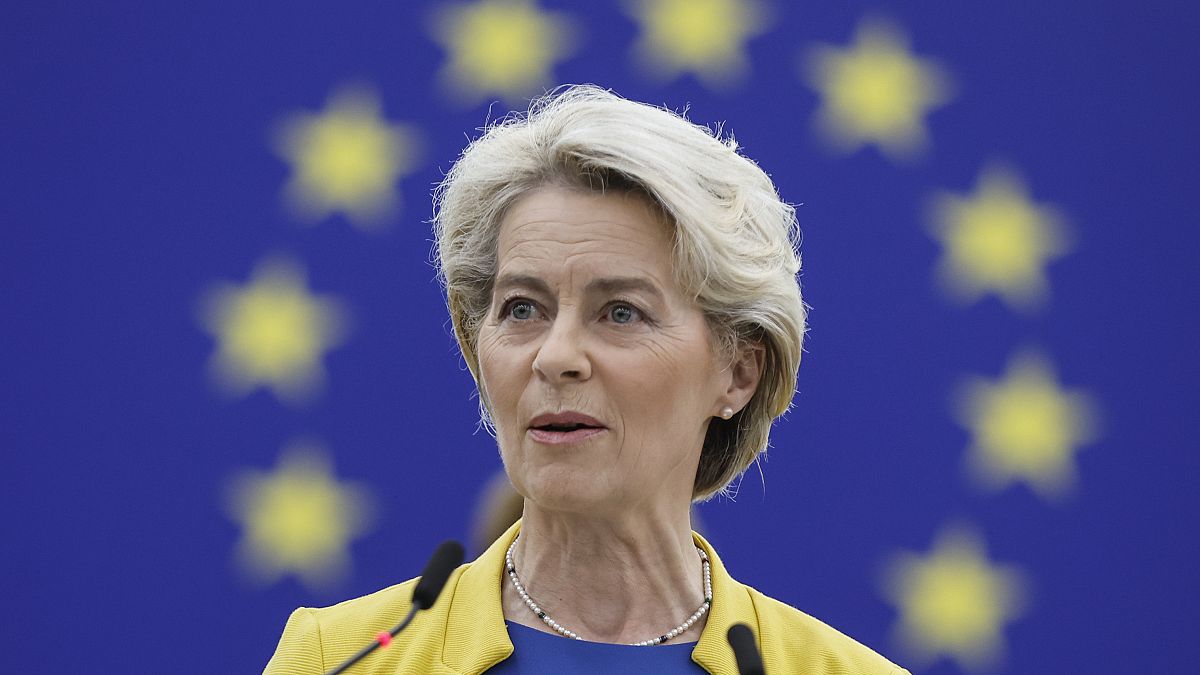Ursula von der Leyen gave her annual address to MEPs on Wednesday, with her remarks focusing on the war in Ukraine, anti-Russian sanctions, and the economic fallout from Russia's aggression.
European Commission President Ursula von der Leyen's annual State of the European Union address dominated the week.
The war in Ukraine, anti-Russian sanctions and the economic fallout from Russia's aggression took centre stage.
The EU Commission president proposed emergency measures to tackle the energy crisis, including a windfall tax on some energy companies and binding targets to reduce consumption.
She made clear that the escalating energy war with Russia would test European resolve through the months ahead.
"This is not only a war unleashed by Russia against Ukraine. This is also a war on our energy. It`s a war on our economy. It`s a war on our values. It is a war on our future. It is about autocracy against democracy," von der Leyen said.
"And I stand here with a conviction that with the necessary courage and with the necessary solidarity, Putin will fail, and Ukraine and Europe will prevail."
If there was any further evidence that the EU and Ukraine have closed ranks, it was the presence of Ukraine's first lady, Olena Yelenska.
She received a hero's welcome, and lawmakers greeted her with a standing ovation.
For her husband, Ukrainian President Volodymyr Zelenskyy, who visited recently liberated regions in northeastern Ukraine, his wife's presence in Strasbourg was a harbinger of even closer relations in the future.
“For the first time in the history of the European Union, a state from outside the EU was actually represented at a special session of the European Parliament during the annual State of the EU Report -- this is our state. So far, from outside the EU. We are working for full membership -- politically, legally, symbolically."
The European Commission also proposed a new law that would prohibit the use of spyware against journalists and state interference in editorial decisions.
The legislation aims to strengthen press freedom, ensure a plurality of voices and increase transparency on media ownership and conflicts of interests.
It comes at a time of decreasing trust in media and increasing threats against news outlets and professionals across the continent.
Several EU countries are under scrutiny over perceived threats to press freedom.
The Greek government has admitted to tapping the phone of an investigative journalist, Slovenia has been condemned for slashing funds to the national news agency, and Hungary has been criticised for allowing excessive media concentration in the hands of a few owners.
The last decade has also seen a string of murders of investigative journalists, such as Daphne Caruana Galizia in Malta, Ján Kuciak in Slovakia, Giorgos Karaivaz in Greece and Peter de Vries in the Netherlands
"This is the legislation for the times we live in – not the times we would like to live in," said Věra Jourová, the Commission's Vice-President for Values and Transparency, while unveiling the draft law.
"For some, it will be too much. For others, it will be too little," Jourová said.
